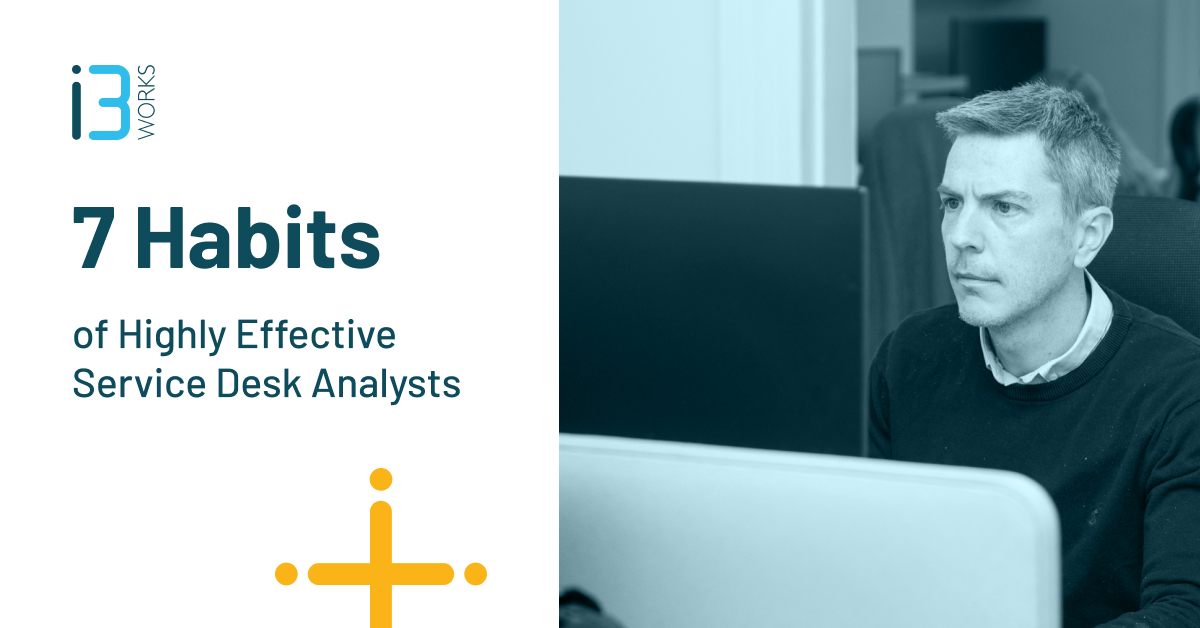An effective service desk will engage with end users, acting as a single point of contact for resolving colleague faults, handling requests, gathering feedback and answering questions. A service desk is only as good as the people in it because first-line support is all about human interaction. They will also be the interface or gateway between the customer and other tiers of IT support, fixing what they can at the first point of contact and escalating everything else to the remaining tiers in the support model. Support technicians are key players within your IT team, so let’s look at the seven habits of highly effective service desk analysts.
Tip 1: Be consistent
As a service desk analyst, you will speak to everyone in your organisation at some point or other – from the intern on their first day to the CEO. Everyone should have the same experience, so get to know your ticketing system or ITSM tool and your service desk processes and procedures.
The service desk is a practice that lends itself very well to checklists. No one wants to be that person who mindlessly reads from a script, but that’s not what we’re going for here. Used effectively, checklists are awesome! Astronauts, pilots and doctors all use them to make sure they get things right the first time – and every time – so let’s start applying that same level of focus to IT support. Things to capture include:
• Title: short description of the fault
• Description: a description of the fault and technical details to support the resolution process
• The service affected
• Priority based on impact and urgency
• Category: based on a service matrix that is searchable
• Location and contact details of the user(s) affected
• Details of any related incidents if appropriate
• Details of any related changes if appropriate
• Details of all diagnostic or attempted recovery actions taken; what has been tried so far? Has anything worked at least partially? Has anything made the situation worse?
Tip 2: Understand your organisation
To be a successful service desk technician, you must have business awareness. This means understanding the departments within your organisation and asking what specific tasks are being disrupted.
Knowing this gives you a gauge for how critical the end user’s problem is – for example, the payroll system being unavailable in the middle of the night is probably only going to be noticed by a handful of people. The payroll system being down on payday? You’re probably two minutes away from absolute chaos. Also, get to know the executive assistants and reception staff – they know everything!
Tip 3: Know the basics
Understand the basics of your organisation. Every organisation is different, but the fundamentals remain the same. Most organisations will have some of the following:
• Email
• Printers
• File services
• Corporate applications
• Network and voice services
• Microsoft Office/Google suite
• Active directory (other directory services are available)
Make sure you have a good understanding of the basics, and this will give you a solid baseline to build on.
Complete the form below to download our eBook and discover the full list of habits of a highly effective service desk analyst!



